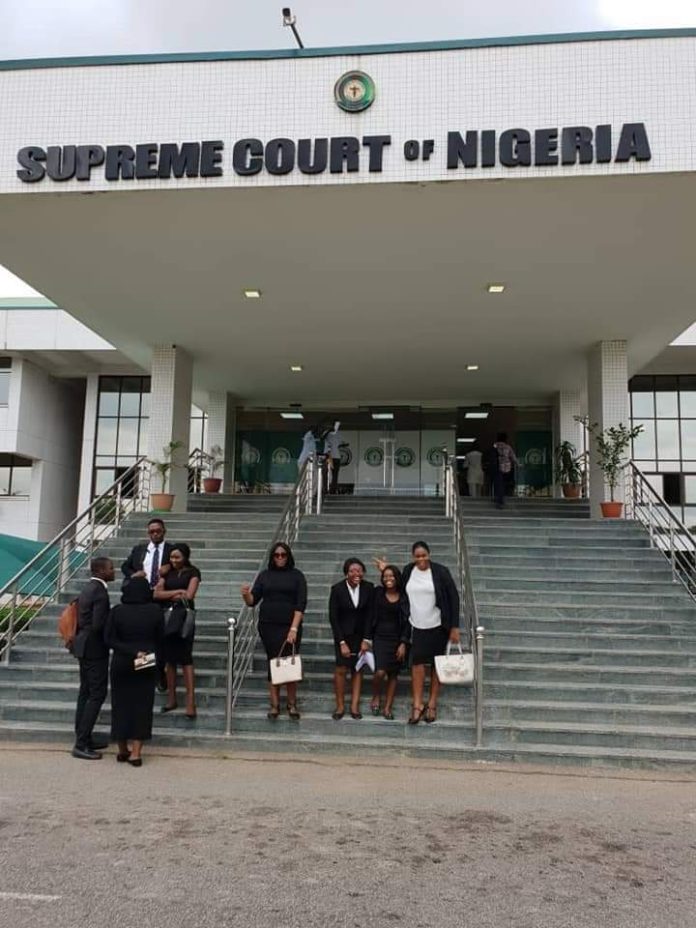On Wednesday the Federal Government asked the Supreme Court to dismiss a suit instituted against it by ten states of the Federation against the re-designing of the Naira Notes and the implementation of the Cashless Policy.
It claimed that the Apex Court lacked jurisdiction to entertain the suit because the dispute that arose over the Naira Re-designing was not between it and the ten states that can lead to invocation of the Supreme Court’s direct intervention.
In its arguments on a preliminary objection presented by a former Attorney General of the Federation, AGF, Kanu Agabi, SAN, the Federal Government said that the anger of the ten states should have been directed at the Central Bank of Nigeria, CBN, responsible solely for the Naira Re-designing.
Agabi drew the attention of the Court to the fact that the name of the CBN was mentioned 32 times in the originating summons, yet the ten states did not deem it fit to join the CBN as a defendant in the matter.
The senior lawyer also informed the Court that seven of the reliefs being sought are against CBN, adding that it would be a great injustice to make order against a party not before the court.
Specifically, the Federal Government maintained that the ten states are crying against the Naira re-designing at the wrong court and argued that the Supreme Court should pursue the states to the Federal High Court.
He said that section 20 (2) of the CBN Act being attacked by the ten states can only be challenged at the Federal High Court and not the Supreme Court.
While faulting the case of the ten states, Agabi submitted that those who instituted the suit are on their own, adding that Nigerians have embraced the Cashless Policy.
He cited the Supreme Court where the Apex Court no longer accepts old currency to file suits before the court.
Agabi further pleaded with the Apex Court to void and set aside the contempt charges initiated against the Attorney General of the Federation, AGF, on the ground that such charges should be directed at the CBN, being the body responsible for the acts that led to the dispute.
The preliminary objection of Edo State was presented by its counsel, Chief Kenneth Mozia, while that of Bayelsa State against the suit was argued by Mr Audu Anuga, SAN.
